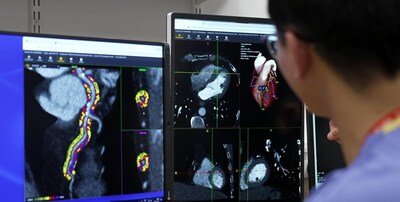
Naples Comprehensive Health (NCH) and Caristo Diagnostics announced that NCH Rooney Heart Institute has become the first hospital in the nation to use both CaRi-Plaque™ and CaRi-Heart®, two AI-powered imaging-based technologies that identify signs of heart disease and predict a patient's risk of heart attack up to 10 years before symptoms appear.
This collaboration marks a significant step forward in the use of artificial intelligence to prevent cardiovascular disease, shifting the focus from reacting to heart attacks to stopping them before they happen.
Caristo's FDA-cleared CaRi-Plaque™ technology analyses coronary CT angiography (CCTA) scans, the first-line test for patients with chest pain, to identify high-risk plaque that may lead to future heart attacks. CaRi-Heart™ is the only technology in the world able to detect and quantify coronary inflammation, an early driver of heart disease, without waiting for patients to develop visible plaque.
Current clinical pathways often fail to identify high-risk patients by missing inflammatory disease activity and relying on plaque assessment alone. In fact, twice as many fatal and non-fatal cardiac events occur in patients without obstructive plaque on CCTA. A breakthrough, CaRi-Heart™ technology provides a risk score to help doctors and patients understand the likelihood of a cardiac event up to 10 years in advance, even in the absence of visible plaque [Lancet, 2024]. The CaRi-Heart technology is widely used in Europe and is currently under FDA review.
"This NCH-Caristo collaboration represents a new paradigm in cardiovascular medicine," said Dee Dee Wang, MD, Section Head of Cardiac Imaging at NCH Rooney Heart Institute. "Doctors are used to responding to cardiac events after they happen. Caristo has the first clinically validated AI solutions that let us prevent heart attacks a decade before they occur."